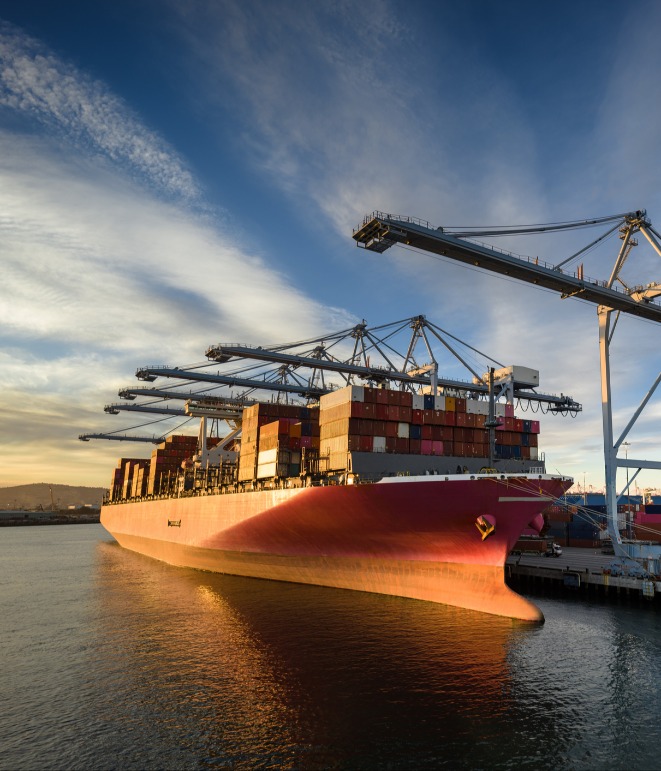
Cited: Shon Hiatt cited in E&E News
Shon Hiatt quoted, "It is not surprising that gas is getting a boost as AI deals get larger and technology companies look for around-the-clock power."
USC Marshall’s Global Supply Chain Management Program Prepares the Next Generation of Leaders
USC Marshall’s Global Supply Chain Management Program Prepares the Next Generation of Leaders
Graduates harness advanced technologies to create resilient, agile, and sustainable supply chains that benefit business and society.

“The pandemic shook up our world,” said Nick Vyas, academic director of USC Marshall’s MS Global Supply Chain Management (GSCM) program.
Worldwide goods shortages — from sriracha to essential medicines — highlighted the intricate web of factories, warehouses, and distributors people depend on and revealed its vulnerabilities.
“The COVID-19 pandemic exposed the structural inefficiencies in global supply chains,” Vyas explained. “In an increasingly unpredictable world, governments and industries have learned that supply chains must be at the core of business strategy. Network resiliency, agility, and sustainability are the new paradigms.”
Digital transformation is crucial, and USC Marshall’s Master of Science in Global Supply Chain Management program is preparing students to lead this evolution by bridging functional expertise and technical fluency.
“By harnessing artificial intelligence, blockchain, the Internet of Things, and advanced robotics — what I call the emerging stack portfolio — we’re reducing the friction in global logistics, allowing the data to flow,” Vyas said. “If we can remove half the waste in global trade, that is close to a trillion dollars in savings to the bottom line.”
Vyas has led USC Marshall’s on-campus and online GSCM programs since 2014. He is also the founding executive director of USC Marshall’s Randall R. Kendrick Global Supply Chain Institute and a professor of data sciences and operations.
To refine its curriculum, GSCM proactively draws on the Kendrick Institute’s global network of industry leaders and innovative research, part of Marshall’s flagship Business of Blockchain initiative.
“We’re constantly scanning the horizon — one, three, five years out — and reflecting those opportunities in our curriculum long before our competitors,” Vyas explained. “Students entering our program gain a distinct advantage, equipped to solve problems before they even arise.”
Partnership with the USC Viterbi School of Engineering also gives supply chain students an edge, exploring the cutting edge in smart contracts, generative AI decision-making, and supply chain analytics.
A weeklong international immersion program shows students how these academic concepts apply on the ground.
We want our students to emerge as the next generation of leaders in resilient, agile, and sustainable supply chains.
— Nick Vyas
Founding Director, Randall R. Kendrick Global Supply Chain Institute
“The dynamic nodes of global trade are constantly shifting. Supply chains have been dependent on China, but a lot has now moved to Vietnam — so our students go there to see how the factories, the infrastructure, the tech, the policies are developing in real time,” Vyas said.
Additionally, students tackle real-world supply chain projects in collaboration with industry leaders, addressing today’s challenges and designing solutions for the future. The impact on their careers and on business outcomes is tangible.
“One of my students referenced a theoretical model we’d discussed in class during a job interview,” Vyas shared. “That conversation opened the door to a new career opportunity where he can implement what he’s learning to help digitally transform a company before he even graduates.”
In a world where decentralized computing is reshaping business, Vyas knows that tech-fluent graduates are essential. With an uncertain future, it will take innovative, responsible leaders ready to meet the challenges ahead, and USC Marshall is committed to their success.
“We want our students to emerge as the next generation of leaders in resilient, agile, and sustainable supply chains,” said Vyas.
RELATED
Cited: Shon Hiatt cited in E&E News
Shon Hiatt quoted, "It is not surprising that gas is getting a boost as AI deals get larger and technology companies look for around-the-clock power."
Marshall Faculty Publications, Awards, and Honors: November 2025
We are proud to highlight the many accomplishments of Marshall’s exceptional faculty recognized for recently accepted and published research and achievements in their field.
Quoted: Nick Vyas in ABC7
In the wake of a major cargo spill and massive container ship fire, Vyas explains how early shipment of goods helped Los Angeles and Long Beach ports absorb the supply chain shock.
Forbes 30 Under 30 Entrepreneur Shares His Journey from Business School to Startup Success
Bobby Pinckney ’20 is creating impact with innovative technological ventures and inspiring new Trojans to shape the future.
Interview: Marco Aponte-Moreno in KCBS
Aponte-Moreno discusses the tense situation between the United States and Venezuela and the prospect of a possible regime change in the South American country.